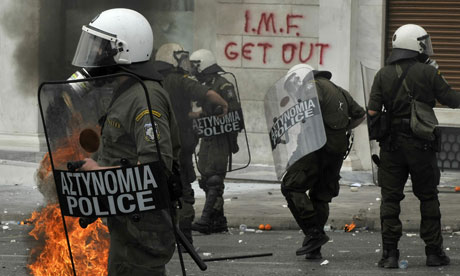Tim Madden is an economist with expertise on credit and banking. Tim and I are colleagues in lobbying government for public banking, with concentration in the US for state-owned banks (and here). The good news is that structural solutions to our economic controlled demolition are obvious and simple; and explained beautifully by many of America’s brightest historical minds. The bad news is that we’re still mired in oligarchic looting of our economies.
Tim’s following article explains collusion of government and judicial “leadership” to facilitate criminal looting through parasitic credit practices. This four-part article explains the principle and law, details a legal example of criminal looting with “official” collusion, and applies this to our international economy.
For a US face to what Americans are discovering as rigged-casino economics, also consider Fred Burks’ work, like this one.
The article is in four parts (links will be added; one each day: Part 1, Part 2, Part 3, Part 4).
Hell claims his right, and with a roaring voice
Says, “Faustus, come; thine hour is almost come!”
- Christopher Marlowe, The Tragical History of the Life and Death of Doctor Faustus
Interest Front-loading = Leverage, Leverage, Leverage.
A single critical factor lies at the heart of the global financial crisis, and that is the ability of financial institutions to conceal or otherwise misrepresent interest, unlawfully capitalized-in-advance, as principal on the face of a financial instrument or “valuable security” as called under the Criminal Code of Canada. The process is called front-loading and its actual and legal significance is that it is mala in se or evil/wrongful of itself, and has both judicial and common law recognition as such in many countries, and especially and repeatedly in Canada.
Without getting too much into the technical details, at a stated rate of 12% per annum, for example, $2,000 worth (or 2%) of concealed loan fees on a nominal $100,000 security will leverage the total interest cost by over $30,000 over a standard (25-year) amortization period – a 15-to-1 ratio. The greater the front-loading, the exponentially greater the fraud against both the original borrower and the markets into which the securities are sold. If the concealed fees are increased to 4% or $4,000, then the extra cost, per $100,000 of nominal principal, increases to $60,000. A 4% increase in concealed fees causes a 40% increase in the time and total interest payments needed to pay off the security. That is why Parliament has repeatedly made front-loading illegal since 1880.
By 1939, many Canadian Members of Parliament had become so frustrated with the repeated failure and constructive refusal of the commercial courts to enforce any and all laws against the practice of front-loading, that they insisted on the addition of a preamble (and directly related subsections copied below) to their then latest effort (Small loans Act of 1939 (2 GEORGE VI. CH. 23.)). The legal purpose of a preamble is to spell out the evil to be prevented or remedied by a statute, to prevent judges from asserting some other purpose in defeat of the law’s true intent. Even after a statute is repealed, the preamble stands and remains as common law recognition of the evil so identified.
In terms of the real and ultimate effect on people’s lives today, including the global financial crisis, these following are arguably the most important words (or concept) ever written (emphasis added):
Whereas it has become the common practice for money-lenders to make charges against borrowers claimed as discount, deduction from an advance, commission, brokerage, chattel mortgage and recording fees, fines and penalties, or for inquiries, defaults or renewals, which, in truth and substance are, in whole or in part, compensation for the use of money loaned or from the acceptance of risk of loss or are so mixed with such compensation as to be indistinguishable therefrom and are, in some cases, charges primarily payable by the lender [i.e., in respect of services consumed by and for the lender] but required to be paid by the borrowers; and whereas the result of these practices is to add to the cost of the loan without increasing the nominal rate of interest charged [i.e., to disguise the true amount of principal and rate of interest] so that the provisions of the law relating to interest and usury have been rendered ineffective: Therefore His Majesty, by and with the advice and consent of the Senate and the House of Commons of Canada, enact as follows:-
2.(a) "cost" of a loan means the whole of the cost of the loan to the borrower whether the same is called interest or is claimed as discount, deduction from an advance, commission, brokerage, chattel mortgage and recording fees, fines, penalties or charges for inquiries, defaults or renewals or otherwise, and whether paid to or charged by the lender or paid to or charged by any other person, and whether fixed and determined by the loan contract itself, or in whole or in part by any other collateral contract or document [side agreement] by which the charges, if any, imposed under the loan contract or the terms of the repayment of the loan are effectively varied.
6.(2) The cost of any such loan or any part thereof ... shall not be compounded or deducted or received in advance. (i)
The above preamble and provisions were intended, from a certain perspective, to protect borrowers from merely being deceived as to the true rate of interest defined by the true and complete terms of a credit/loan/security contract. But the words underlined in the preamble (commencing “…and whereas the result of these practices…”) can also be logically replaced or augmented with “…the result of these practices is to facilitate the systematic registration and trade in security instruments which systematically misrepresent that a greater principal amount had been advanced or invested, and at a lower rate, than the actual transactions to which the securities correspond, and which transactions-in-fact define and determine the security-in-fact of the said instruments.”
Without that ability-in-fact of financial institutions to so falsify, and trade in, the falsified security instruments , the global financial crisis could not exist. It is the sine qua non, or one essential element, of all financial pyramid schemes in practice.
Canadian Crown courts forsake legal duty, in aid and furtherance of Crown dispensation scheme
The Criminal Code amendment became law in January of 1981 and for about the following six years the commercial/civil courts at all levels in Canada made a series of increasingly and transparently contrived rulings on the meaning and effect of the criminal interest rate law under a commercial (credit) contract. In virtually every case the actual intent of the court (to any sufficiently sophisticated observer) was obviously to avoid the resulting/concurrent issue of the financial liability of the creditor’s solicitors.
By 1987, however, a great deal of commercial uncertainty in the Canadian financial markets had resulted from the utterly confusing and contradictory rulings and rationales used by the courts to avoid applying the new law (but only to corporations, and not when the accused was a conventional criminal).
The Courts at all three levels (Ontario General Division (Queen’s Bench), the Ontario Court of Appeal, and the Supreme Court of Canada), then seized upon the case of Thomson, (William E.) Associates Inc. v. Carpenter [1989] 34 O.A.C. pp. 365-375, to issue a ruling that appears to have nominally settled the matter, but which constituted and continues as technically an act of sedition and insurrection against the lawful authority of the Parliament of Canada, as well as a prima facie offence by the Court itself under ss. 462.31(1) (laundering proceeds of crime) (also contrary to the treaties).
The primary decision explaining the courts’ reasoning was issued as a unanimous decision of a panel of the Ontario Court of Appeal that was then ratified by the Supreme Court of Canada without additional reasons.
Ground Zero – the Thomson decision
The Thomson case involved several independent elements that are common devices for the falsification of securities, and which made it a perfect storm of factors for the courts’ unlawful, illegal and utterly reckless intervention.
William E. Thomson was a director of a mining company located (the mine) in the U.S. but whose corporate head office was in Toronto (Canada). From my reading of the trial judge’s decision, the company had been in serious financial difficulty (likely imminent bankruptcy/insolvency) and needed approximately $200,000 of operating capital to stay afloat for another 90 days (it appeared to me that the company’s intent was to defraud certain secured and unsecured creditors, but such is not necessary to establish here (although technically such intent is automatically established on the facts)).
Mr. Thomson also owned a credit company called William E. Thomson Associates Inc. that appears to have specialized in making short-term loans at very high interest rates to companies in financial difficulty. Mr. Thomson had explained to the other board members that he had personal connections at the Canadian Imperial Bank of Commerce (CIBC) and that he could obtain the necessary funds on behalf of the mining company.
The final arrangement was that Thomson Associates Inc. would advance a net $205,000 in exchange for a promissory note issued and signed by officers of the mining company claiming that the principal sum of the advance was $250,000, with interest at “CIBC prime plus 2%”, at the time about 18% per annum in total. The promissory note was due in 88 days and the real rate of interest defined by the actual terms was 145% per annum, about two-and-a-half times the criminal threshold of 60%, and the court found and accepted the amounts and timing as findings of fact.
According to the trial judge the whole arrangement was coordinated by Mr. Thomson’s solicitors, which the trial judge had described as “a leading Toronto law firm”. The solicitors had clearly understood that what they were doing was criminal because they had taken clear and calculated steps to conceal what they were doing (in law such is prima facie evidence of mens rea or guilty mind in a criminal proceeding). And they made a critical error in the execution.
Management at the CIBC branch where Mr. Thomson obtained his funds was aware of the real terms of the arrangement and would only agree to advance the net $205,000. If Mr. Thomson and his leading Toronto law firm wanted their extra $45,000 in concealed interest-capitalized-in-advance, then they would actually have to collect it at the end of the 88-day term. As a result, the parties failed to go through the motions of paying the $45,000 in advance by secret (unregistered) side-agreement from the nominal proceeds, as per the documentation prepared by the solicitors. They simply falsified the documents.
Note also that the trial judge was technically incorrect in that the $45,000 fee had in fact been compounded at time zero (infinite rate of conversion/compounding) by its inclusion in the “Principal Amount” of the promissory note, and then re-compounded by subjecting it to “prime plus 2%” from day one.
Also it is important to appreciate the frame of reference defined by the Criminal Code. On the facts, the lender had attempted to use the device of a criminal rate of interest to siphon off assets from a failing company. And to conceal such use through constructive and actual falsification of security documents. The relative amounts and/or that the attempt may have failed is not relevant. So there were at least three distinct layers of prima facie criminality/racketeering before the courts.
Mr. Thomson also managed to coerce (as proved-in-law by the criminal-terms-in-fact) Mr. Carpenter, a junior member of the board of the mining company, to issue a $75,000 promissory note to Thomson Associates Inc. as a personal guarantee of the company’s $250,000 “principal” debt.
Not surprisingly (except to the people directly involved), the mining company was forced into receivership/liquidation shortly thereafter and defaulted on the $250,000 note, and Thomson sued Carpenter in civil court to recover on his (Carpenter’s) $75,000 guarantee.
On the facts, Thomson Associates Inc. and its solicitors were prima facie guilty of offending (at least) ss. 347(1)(a) (arrangement to receive interest at a criminal rate), ss. 462.31(1) (laundering proceeds of crime), s. 397(1)(b)(omitting material particular from a valuable security for fraudulent purpose), s. 366 (making false documents with intent to rely upon as genuine), s. 368 (uttering false documents), s. 380 ((fraud) against unsecured creditors of the mining company), and s. 463.3(c) (counselling to commit an enterprise crime/racketeering offence, all of which are enterprise crime/racketeering offences (now and as of 2001 called “designated offences”).
The trial judge, however, (unlawfully and illegally) confined the issues to just ss. 347(1)(a) (agreement or arrangement to receive interest at criminal rate) but could not avoid two essential findings of fact and law, and so presented one as a mitigating factor of the other.
The Act states (in material part):
347. (1) Notwithstanding any Act of Parliament, every one who (a) enters into an agreement or arrangement to receive interest at a criminal rate, ... is guilty of (c) an indictable offence [a felony] and liable to imprisonment for a term not exceeding five years,...
and the appeal court found on the basis of the facts established at trial:
There is no doubt that the corporate plaintiff [Thomson Associates Inc.] committed an offence under s. 347(1)(a) by entering into an agreement or arrangement to receive interest at a criminal rate [and/but] The parties... acted on the advice of their... solicitors....
The finding of criminality of the agreement automatically implicated/criminalized Thomson’s “leading Toronto law firm” who/that had prepared the loan documentation, by ss. 462.3(c):
“enterprise crime offence [now called a “designated offence”]” means
(c) a conspiracy or an attempt to commit, being an accessory after the fact in relation to, or any counselling in relation to, an offence referred to in paragraph (a), (b) or (b.1) [e.g. ss. 462.3(a)(xiii.1) (s. 347)].
Further, the courts are legally and morally (equitably) required to take note of, and to act upon, such direct criminality that arises from the court’s own findings of fact. The offence committed by the solicitors (and by the CIBC) was and remains not a collateral offence to the lender’s principal offence, but a separate and distinct offence by the solicitors arising from (prima facie established by) the same facts. The term “enterprise crime offence” itself includes any counselling to commit as a distinct offence. (A prima facie case, as here, means accepted/proven facts sufficient to convict, such that the onus shifts to the accused (solicitor) to prove that things are not what they appear to be, or else be convicted.)
English/Canadian law is clear (with respect to both the plaintiff (Thomson Associates Inc.) and its solicitors) on the court’s moral/equitable and legal obligation.
It also does not matter that the illegality may only come to light during the course of proceedings and without having been specifically plead in advance (although that was not the case here regardless). This aspect is important due to the existence of a general understanding among lawyers that they will not accuse each other’s clients of criminal conduct in civil litigation. As a result accusations/questions of illegality often arise during and not before the proceedings.
In Snell v. Unity Finance, [English] Court of Appeal, [1963] 3 All E.R. 50, the contract was what the English call a hire-purchase agreement - a kind of rent-to-own loan arrangement. The Hire-Purchase Act required a minimum 25% down-payment on certain types of auto loans and was/is intended as general protection of investors in finance-company bonds. The purchaser/ borrower did not have the stipulated down payment and so the seller/lender (auto dealer acting as agent of the finance company) merely inflated the nominal selling price of the car in the loan contract to cover the 25%/shortfall. The trial judge referred to the dealer’s action as a “dishonourable trick” (it was in law fraud) but ruled in his favour anyway because the illegality of the contract had not been submitted in advance as an issue. The English appeal court explained why the trial judge was wrong to have done so (emphasis added):
We have been referred to a number of other cases in which that principle has been asserted. In Scott v. Brown, Doering, McNab & Co. ([1892] 2 Q.B. at p. 728), the principle was stated by Lindley, L. J., in the following terms (emphasis added):
"No court ought to enforce an illegal contract or allow itself to be made the instrument of enforcing obligations alleged to arise out of a contract or transaction which is illegal, if the illegality is duly brought to the notice of the court, and if the person invoking the aid of the court is himself implicated in the illegality. It matters not whether the defendant has pleaded the illegality or whether he has not. If the evidence adduced by the plaintiff proves the illegality the court ought not to assist him. If authority is wanted for this proposition, it will be found in the well-known judgment of Lord Mansfield in Holman v. Johnson.".
...I refer to the case for the statement of principle by Scrutton, L.J., [Re Mahmoud and Ispahani’s Arbitration, [1921] All E.R. Rep. 217; [1921] 2 K.B. 716], who said:
"In my view the court is bound, once it knows that the contract is illegal, itself to take the objection and to refuse to enforce the contract, whether its knowledge comes from the statement of the party who was guilty of the illegality, or whether its knowledge comes from outside sources. The court does not sit to enforce illegal contracts. There is no question of estoppel [i.e., any kind of waiver clause within the contract]; it is for the protection of the public that the court refuses to enforce such a contract."
The English Court of Appeal also explained that it is the nature of illegal contracts that it is often advantageous to both parties not to raise the issue of illegality. If the courts were to rely solely on the parties themselves, then two commercial parties could use the courts to systematically enforce illegal agreements that are prejudicial to third parties (e.g., bond holders or the public generally) by the simple expedient of agreeing between themselves not to raise the issue. It would be especially easy for two parties to launder money through straw-man insurance contracts between themselves, ratified by a court judgement or payment order.
Part 3 tomorrow...






